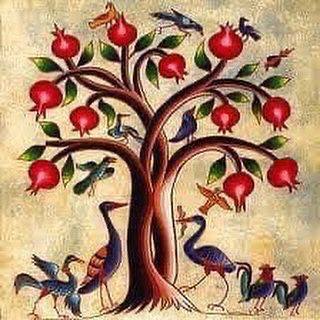Nardogan» – New Year of Turks
«Nardogan» is a celebration of the New Year of ancient Turks. «Nar guhesh, dougan, tougan, nardougan gunesh» in Turkic language means «the birth of the sun». «Nardogan» celebrated each year on the full moon after December 22. Night of 21 December – the longest, then the days begin to lengthen. Therefore, December 22 is a very important day for Turks. With the first day of the full moon, a new year begins.
In the mythology of the ancient Turks stated that both day and night constantly fight with each other. In one of the battles«, on 21of December, after a long struggle Day won, followed by birth of a strong sun. Turks that believe in one God happily accepted a newborn Sun and made it a symbol of victory. According to their beliefs, in the center of the Earth is the place where grow Akchacham trees, and where almighty God Oolgen is watching after people. The birth of the new Sun, Turks accepted as new beginning, rebirth, new hope and purpose. People give thanks, pray to almighty Oolgen with new hope, and share their joy and happiness under the trees Akchacham. At the trees’ foot, everyone left presents and gifts designed to God Oolgen.
It believed that these trees provide the link between people and God. Thus, these sacred trees considered a place where people can share with God with their happiness and joy. These ancient Turkic traditions have had an impact for the art and cultural heritage not only of the Turks of Central Asia, but also all other Turkic folks.
According to the ancient Turkic mythology the Akchacham tree is a symbol of immortality and all people on Earth were descended from it. Over time, people began to decorate the tree and under it staged traditional games, sang songs and played on the lute.
It is believed that this tradition have originated from the Turkic folks of Central Asia. Over time, this custom of Turks spread to Sumer-nomads in Mesopotamia and then through Anatolia reached ancient Rome. Now, this tree became the symbol of the New Year, celebrated on January 1. It is also associated with the Turkish holidays «Paktygan» and «Kochagan». The Tatars call it «Koyash Tuga» or «Rashtua», meaning «birthday of the Sun», Bashkirs and Oodmurt people – «Nardogan» or «Mardougan». In Chuvash, it is sounds like «Nartavan» or «Nartoukan», in Moksha language «Nardvan» and Zyrizes called it «Nardava»
